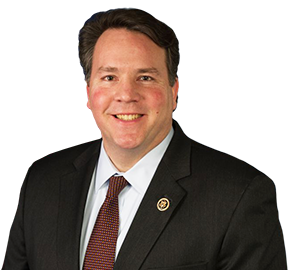As the federal government continues to bailout the economy and markets by creating trillions of unbacked pieces of paper and electronic digits, a handful of Congressmen hope to shine a new spotlight on the devastating effects of this runaway financial profligacy.
Congressman Warren Davidson (R-OH) recently announced the creation of the Congressional Sound Money Caucus. According to Congressman Davidson’s office, the caucus exists to promote sound fiscal and monetary policy in the United States with the goal of preserving the purchasing power of the U.S. Federal Reserve Note.
Monetary policy, especially since the 2008 financial crisis, coupled with the recent federal fiscal response to coronavirus has re-inflated nominal asset prices and contributed to the wealth gap, while weakening the Federal Reserve Note in relation to the world’s other fiat currencies.
Reps. Alex Mooney (R-WV), Andy Barr (R-KY), Kevin Brady (R-TX), Ted Budd (R-NC), and Lee Zeldin (R-NY) also joined the caucus.
For several years, Congressman Mooney has been a leader on the sound money issue, hammering away at manipulation in the gold market and counterfeiting — and Mooney has introduced several pendings bills to audit America’s gold reserves, remove income tax on the monetary metals, and resume some form of gold backing to our currency.
Congressman Davidson introduced the Sound Money Caucus on the floor of the House by saying:
“We already have a great core group of members who are leaders in this area, who understand how important it is for the U.S. dollar to be an enduring store of value and an efficient means of exchange. I look forward to hashing out policy solutions to address the economic distortions of monetary inflation, so that monetary and fiscal policy can help rebuild the middle class, restart the American economy, and get us on a path for sustainable growth.”
In an era where even so-called “conservatives” are adding trillions to the federal deficit, sound money is more important than ever. Sound money is the linchpin of a prosperous society because it protects capital and creates stability.
Individuals and civilizations thrive under a sound money regime because uncertainty is reduced, and savings are respected and preserved. People can plan, save, and invest for the future without the fear of their money being manipulated and weaponized for political purposes.
Further, sound money acts as a bulwark against Big Government and runaway levels of debt. Unfortunately, the United States government has proven that they can’t be trusted with an unchecked monetary monopoly. It’s no surprise that severing the tie between the U.S. Dollar and gold has resulted in frivolous, debt-funded spending by the political left and the right, depleting the value and general confidence in the U.S. Federal Reserve Note.
After being driven out of the public conciousness over the past century, sound money is an idea whose time has come (again). Americans and even Fed-bugs are grappling with the immutable truth that governments can’t print society into prosperity.

